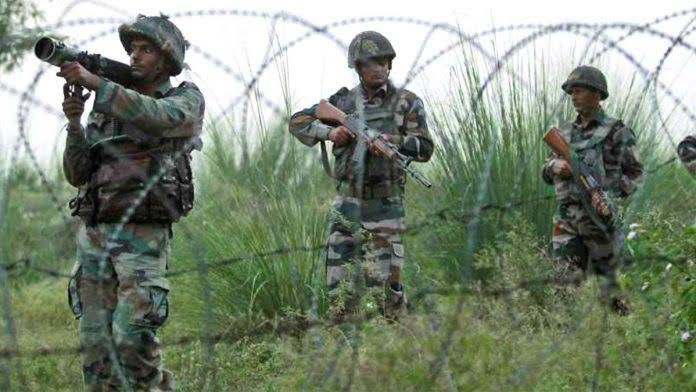Mubashir Bukhari
Srinagar (NVI): Tension between India and Pakistan has sounded a death knell for the border economy with 600 traders and 300 labourers rendered jobless in Jammu and Kashmir alone, a noted research and policy think tank has revealed in a new book.
Entitled ‘Unilateral Decisions Bilateral Losses’, Bureau of Research on Industry and Economic Fundamentals (BRIEF) has explained in detail the socio-economic impact of trade suspension in Jammu and Kashmir and Punjab.
Authored by Afaq Hussain and Nikita Singla, Director and Associate Director at BRIEF respectively, the book has revealed 600 traders and 300 labourers in Jammu and Kashmir have suffered heavily due to the suspension of cross LoC trade.
Likewise, the book claims that more than 9,000 families were directly affected by the suspension of the trade in Amritsar. Every month, Punjab economy suffers Rs 30 crore losses due to the trade ban.
“Based on the ground interactions with stakeholders in Jammu and Kashmir, about 600 merchants and 300 labourers, who were all directly involved in the day-to-day trade operations across the LoC, were hit by the trade ban,” the book claims.
The cross LoC trade would take place via two routes- Uri – Muzaffarabad in Kashmir and Poonch – Rawalakot in Jammu. As many as 21 tradable items were being traded without any taxation. No financial transaction was involved in the trade. The traders of two countries were following the barter system of trade.
On April 18, 2019, Ministry of Home Affairs (MHA) ordered suspension of the cross LoC trade in Jammu and Kashmir, citing “funneling of illegal weapons, narcotics and fake currency” as the main reasons.
At least 230 traders lost a profit of Rs 15 crore in first 31 weeks of suspension of trade along the Uri – Muzaffarabad route.
In Kashmir, the suspension of LoC trade has forced many people including businessmen and labourers associated with the trade to look for other options. Around 100 labourers in Uri have now moved to other places including Srinagar and Baramullah town in search for work to support their families.
“This was the only means to earn bread for our families, which too has been snatched now. There are no good avenues of employment in Uri,” said a labourer.








